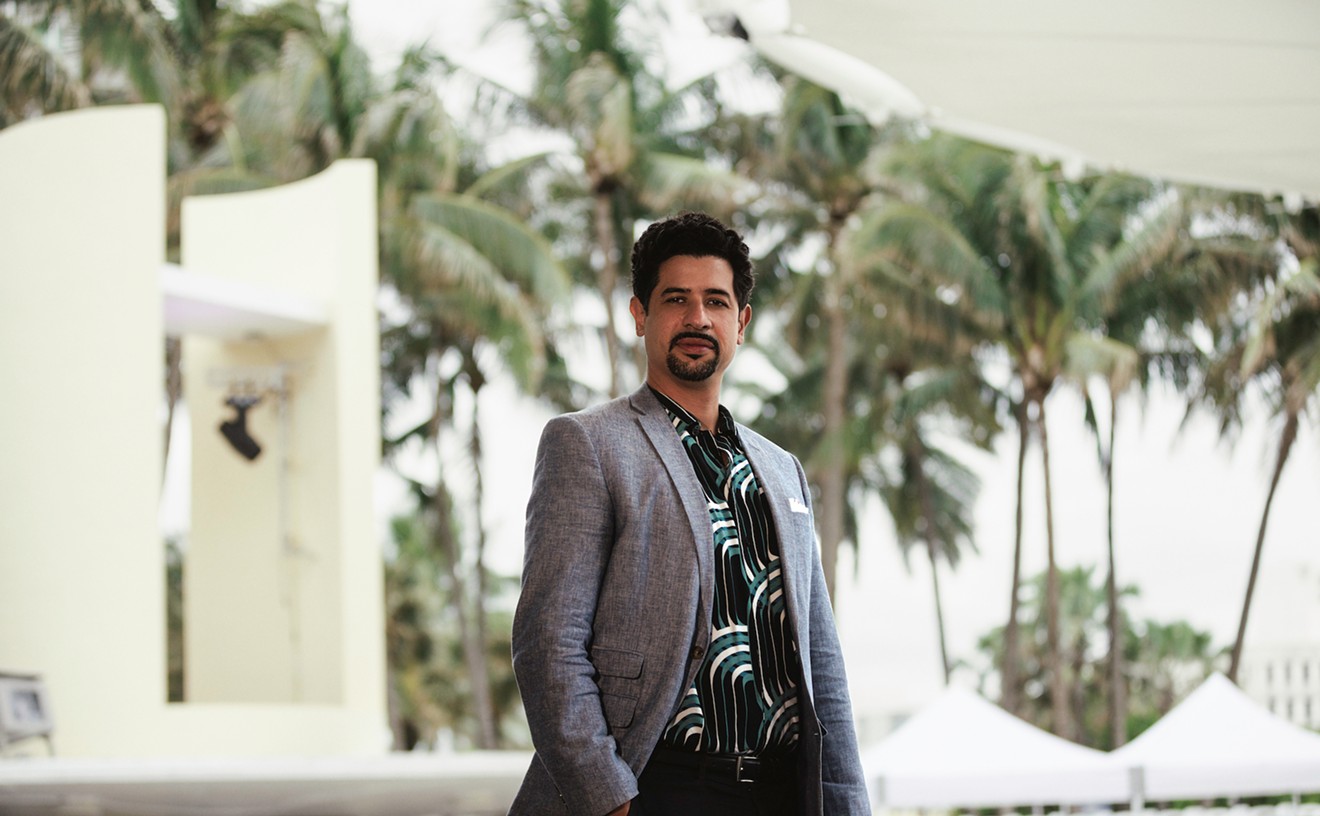Common myth would have you believe that a person uses either the right side or the left side of the brain, and that alone determines whether the individual is creative or logical, as if the two are mutually exclusive.
"I don't believe it," Manchester native Sam Shepherd says over the phone from his London studio. "I feel like a lot of people try to keep me into one of them by asking me the question, 'How does your
Shepherd and his
But for Shepherd, his journey into academia was just another thing that kept him busy.
"I think when I was doing the
"I think when I was doing the PhD, music was my kind of hobby."
tweet this
In fact, he took his hobby so seriously that under the moniker Floating Points he became something of an enigma. While the early EDM peak had DJs scurrying for superstardom, Shepherd wowed clubgoers via his deep knowledge of music and his voracious appetite for crate-digging. And with tracks such as "Vacuum Boogie," "Nuits Sonores," and "ARP3," Shepherd flexed his producing muscle, earning the adoration of listeners and critics.
Finally, in 2015, came Elaenia, Floating Points' first full-length album. Unlike the previous singles and EPs, the album seemed more organic. It's rare to find an electronic music album that feels like it was composed by a human being, but Elaenia delivered — thanks to a healthy dose of improvisation and live instrumentation that recalls Shepherd's love of jazz.
Take, for example, the track "Silhouettes (I, II, III)," which Shepherd says was entirely improvised.
"This was one of those moments when I was just playing the piano, and I played the [Fender] Rhodes part that is 'Silhouettes' from beginning to end with not a single overdub or anything. It just goes from fast in the beginning to slow in the middle back to fast in the end. I just had a kick track running in the background, and that was it. It was entirely improvisational."
That's perhaps why it's difficult to call Elaenia a dance music album. Though it's definitely electronic in nature, Shepherd has created a body of work that ditches his club-friendly past that earned him comparisons to Four Tet and Jamie xx.
"All my old music is almost exclusively from just a laptop," Shepherd admits, "but this music is definitely the function of lots of bits of gear."
And make no mistake, Shepherd loves his music gear. His London studio is filled to the brim, and he even cut his finger trying to open a newly arrived Hammond organ pedal while speaking with New Times. But that tiny amount of pain is a small price to pay for Floating Points' work. It's richly textured and alive, while still sounding electronic. It crackles and sounds analog without seeming coy or gimmicky.
"I think the reason it does sound kind of warm and has that organic feel to it is because a real electronic synthesizer is going through a guitar amp and funny compressor and getting picked up by a microphone... I don't know many people who are recording electric synthesizers through the guitar amp, then putting it through a modular synth built for a microphone, then putting that back onto a tape machine, slowing it down."
Experiments like that have also translated to a different sort of live show for Floating Points. Don't expect to see Shepherd standing behind a console while bopping his head. Instead, much like his studio, the stage will be filled with music gear, along with a full band.
"The whole band is morphing and changing. Originally, there were four strings, flute, clarinet, trombone. Now there are two guitars, drums, bass, drum machines, loads of electronics, an organ, Fender Rhodes, and a big Buchla modular synthesizer."
Whatever he ends up presenting in the final show of his tour, expect to see Shepherd exhibit both his creative and pragmatic sides
"I think it's important that [the live show] stays interesting," Shepherd says, "so when we play, we're not just a machine playing the same thing every time."
Floating Points with Olga Bell and











